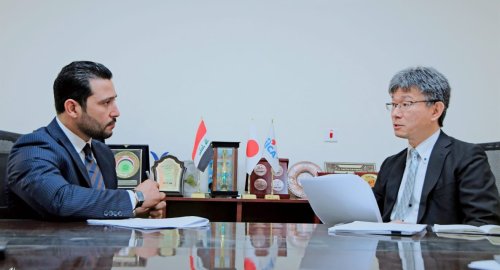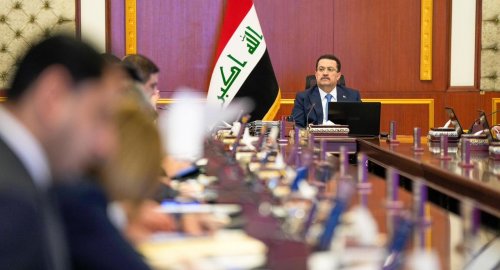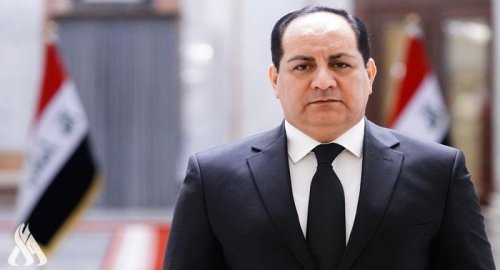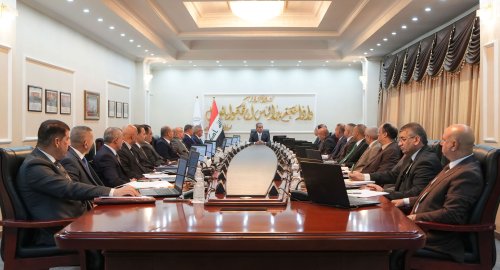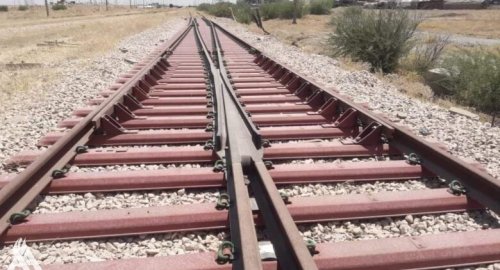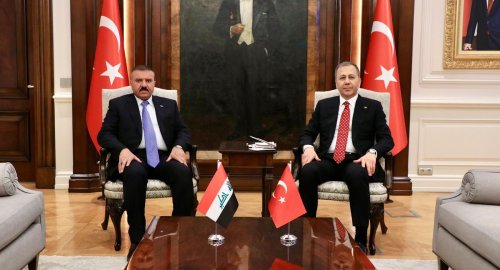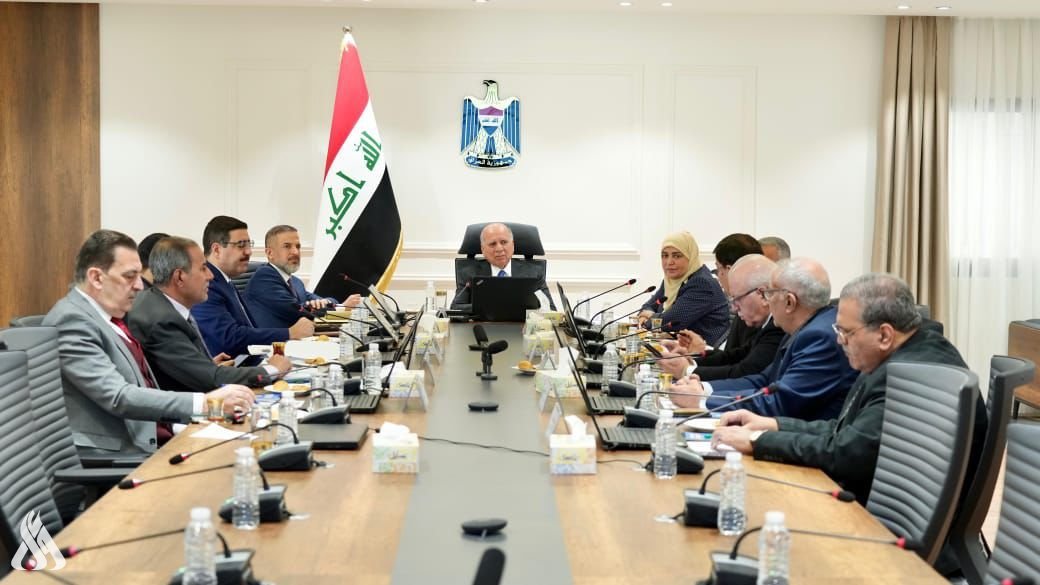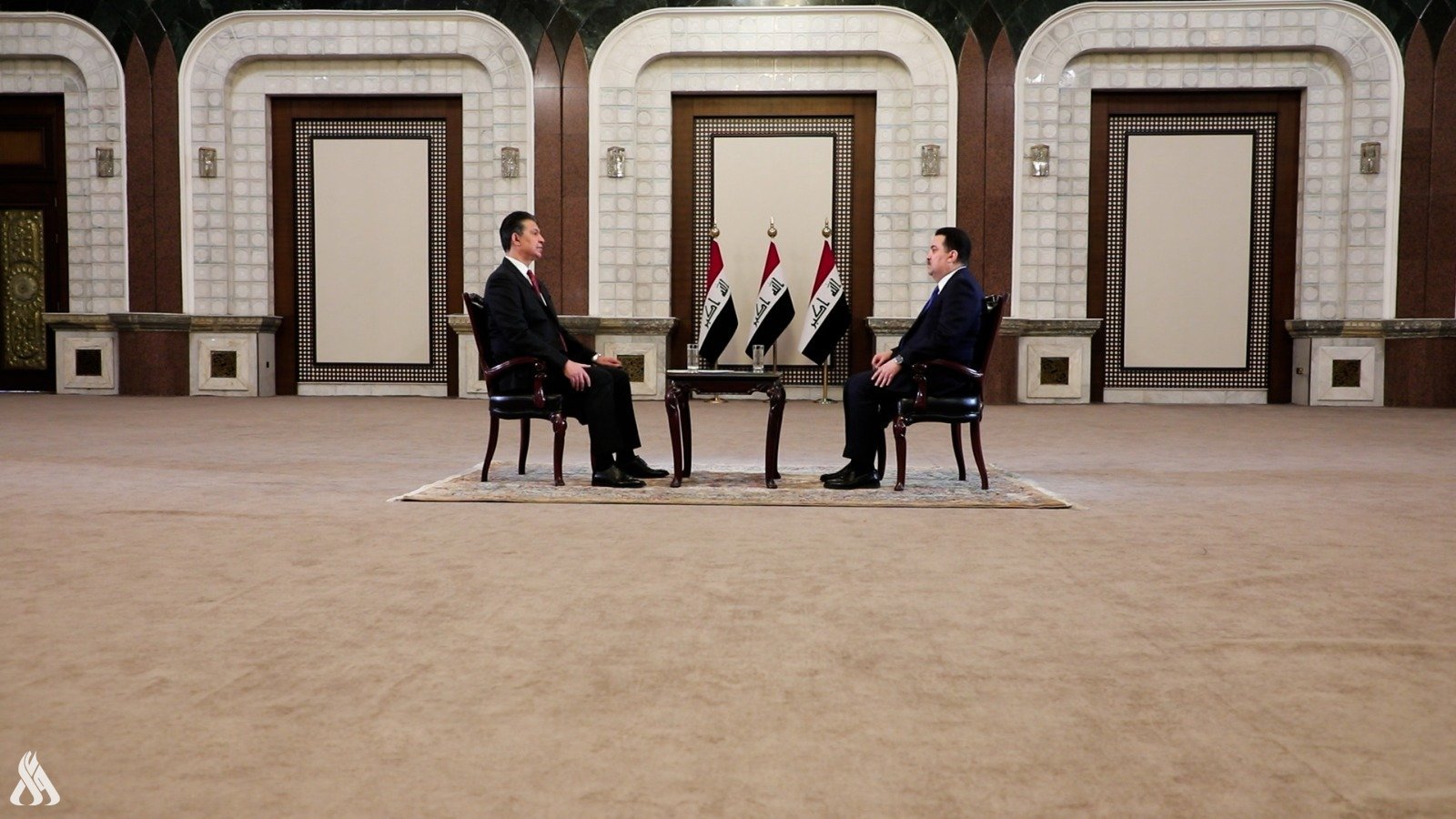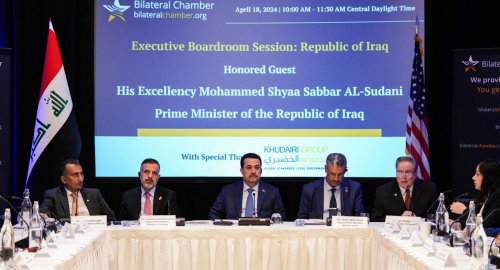
Al-Sudani Meets with American Energy Companies in Houston

- 19-04-2024, 03:00
Baghdad-INA
Prime Minister Mohammed S. Al-Sudani met today, Thursday, with major American companies specializing in oil and gas. The meeting was part of a roundtable organized by the Arab-American Chamber of Commerce AACC in Houston, Texas, as part of his official visit to the United States.
The Prime Minister's Media Office said in a statement received by the Iraqi News Agency (INA): “During the meeting, Prime Minister Al-Sudani presented the government's program and its goals for optimal investment in oil and gas."
He outlined," the government's future vision and highlighted key strategic projects currently being implemented in Iraq. “
He also discussed,” specific investment opportunities and promoted the fifth supplementary and sixth licensing rounds, which include 30 oil and gas fields and an exploratory gas block in Anbar, Nineveh, Diwaniyah, Najaf, and Samawah.”
Prime Minister Al-Sudani announced, “A two-week extension for applications for the fifth and sixth licensing rounds to give more companies the opportunity to participate.”
He assured that,” Iraq enjoys a stable security situation nationwide and invited American companies to engage in partnerships with the Iraqi private sector, which is receiving significant government support. He noted the comprehensive development occurring across all sectors in Iraq.”
Key points from Prime Minister Mohammed S. Al-Sudani's speech at the roundtable discussion:
We have developed a vision for our relationship with the United States following our discussions and meeting with President Biden, aiming for a partnership that spans all sectors.
Our vision relies on mutual interests and will be strongly represented through joint ventures, particularly with the participation of companies in Iraq.
Iraq holds significant potential in the energy market both in production and reserves. Previous challenging conditions and obstacles prevented us from achieving optimal investment in our resources.
Recently, we have moved closer to self-sufficiency in oil derivatives that we had been importing over the past years.
Our government has initiated a new approach to resource utilization, enhancing production capacity and harnessing associated gas, and advancing the petrochemical and fertilizer industries.
We have planned to convert 40% of our production to oil derivatives.
Importing gas costs us $4 billion annually, while we burn approximately 1.3 billion cubic feet per day, impacting the environment negatively.
Our plan includes stopping gas flaring through a significant contract with Total, a strategic move, and we encourage companies like Honeywell and others to implement these contracts.
We are working on a solar power plant project with a capacity of 1000 MW and a project for water injection in oil wells.
The fifth licensing round includes projects by the Emirati Al Hilal Group and a Chinese company, in addition to national efforts, aiming to reach 2.4 billion cubic feet.
We are presenting projects, including those from the fifth and sixth licensing rounds, extending the application submission period by 15 days to provide more opportunities.
The sixth licensing round includes exploratory blocks and fields rich in natural gas.
We have introduced "integrated projects" that involve oil extraction, gas investment, the establishment of power plants, oil refineries, and petrochemical industries.
Integrated project opportunities are available in fields like Dima in Maysan, Bin Umar in Basra, and the exploration blocks in Thi Qar.
We have opportunities to establish petrochemical and fertilizer complexes in Karbala and the FAW Petrochemical Complex, and the Nibras project, after Shell withdrew due to a strategic shift focusing on gas projects.
We have plans for multiple export outlets as our flexibility in exporting requires reliance on additional outlets.
We developed the idea of establishing a petrochemical and refinery complex in Ain Sokhna, Egypt, following understandings, and we have now begun implementing the first phase (Basra-Haditha), which will provide us with export flexibility and could be an economic model involving three countries for this important and vital project.
The development road linked to ALFaw Port will be a vital project, and we are coordinating with the Turkish side about it. ALFaw Port will be operational by the end of 2025 and will be one of the largest ports in the region.
We have agreed with Abu Dhabi Ports on a partnership to operate Al Faw Grand Port, and we are currently finalizing the contract details.
There will be a large economic city and a new residential city adjacent to Al Faw Grand Port, incorporating projects for all related industries.
We will sign a contract with a Chinese company to construct the Al Faw refinery with a capacity of 300,000 barrels per day.
Russia foils assassination attempts on defense officials
- International
- 01:22
US Central Command: We killed ISIS terrorist leader Abu Yusuf in Syria
- International
- 24/12/20
Liverpool compete with Real Madrid to sign Olympique Lyonnais star
- Security
- 24/12/19
7 ISIS elements arrested in Kirkuk
- Security
- 24/12/20

